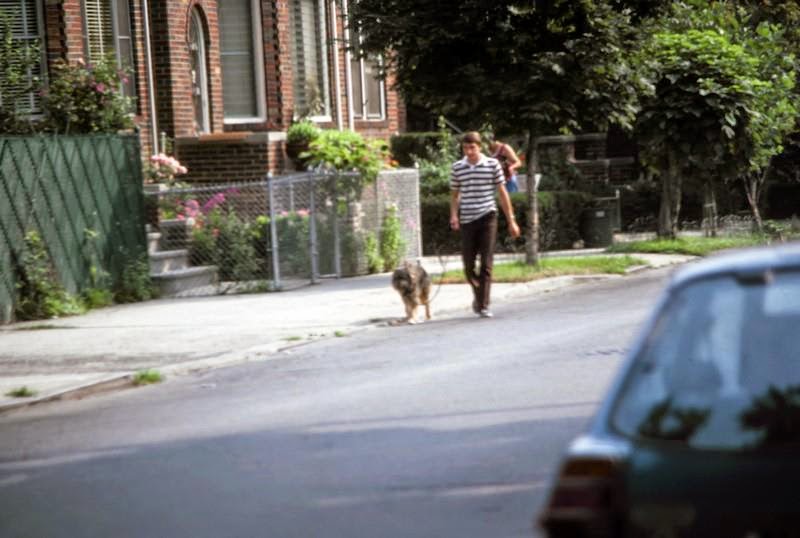I was very fortunate to know my paternal grandmother for the
first twenty-six years of my life. When she died at the age of ninety-three in
1989, she was an old ninety-three. Men and women of her generation—from before
the many modern medical miracles—tended to be old before their time. In sharp
contrast with those of us existing in the pampered present, they led patently
rougher lives. I, for one, couldn’t imagine doing hard labor on the railroad as
a teenager, which is what my grandmother did while all the able-bodied men from
her town were off fighting in World War I. She hauled big rocks long distances.
I could envision even less fighting in the trenches and getting gassed in the
"war to end all wars."
My grandmother was born in 1895 in a place called Castlemezzano,
a rocky mountain town in the province of Potenza in the Basilicata region of
Southern Italy. From my perspective as a boy, she was always an old lady.
That is, an old lady in the most positive sense, revered for the wisdom she
amassed while navigating through the rough and tumble of life. From an impoverished existence in a small
village with no electricity, running water, or plumbing of any kind to a new
life in the Morningside Heights section of Manhattan during the Great
Depression, she always appreciated what she had, even when it wasn’t much, and
was never heard to complain about anything.
My grandmother’s father—my great-grandfather Antonio
Casa—was a musician who could read and write in a place and in a time when that
sort of thing was exceptional. He made a little money and received bottles of
wine and freshly made cheeses by reading and writing letters for townspeople.
The problem with “Signore” Casa was that he didn’t have much of a work ethic
and didn’t feel remotely obligated to his family—a wife and two daughters. My
grandmother’s mother—my great-grandmother Maria Casa—worked every conceivable
odd job to provide for her children. She baked breads for neighbors in her
brick oven for, quite literally sometimes, bread. Her roguish husband was known
to pilfer what little the family had and, with the spoils, endeavor to impress
his numerous lady friends around town. Antonio Casa—with his piercing,
manic-looking green eyes—was the antithesis of a faithful husband and devoted
father. He employed his reading and writing talents to win over more than a few
hearts and—so said the scuttlebutt—purposely misread a letter or two for
personal gain. Those scenarios, however, are left to our imaginations.
Antonio Casa eventually assumed the role of transatlantic
guardian—for a fee, of course—when he accompanied a woman from town across the
ocean to reunite with her husband, who had settled in America. Upon learning of
his departure from Italian soil, his long-suffering wife—my great-grandmother—kissed the ground and
prayed to the Almighty that she would never, ever see the louse again. She
never did. Thereafter, she raised the Casa family without interference. Maria
Casa even insisted her two girls go to school and learn to read and write,
just like their no-good father, which was not very commonplace back then.
Ignorant folks in the village sneered at the audacity of her desire to see her
two girls get an education.
Mission accomplished. Antonio Casa arrived safely at his
final destination, Al Capone's Chicago, where he lived for a spell. The
historical account gets a bit sketchy here, but it seems the man did more
than reunite a husband and wife on American soil. Apparently, he was engaged in
a full-blown affair with the woman he accompanied to America. When his
transgressions came to light, the Lothario was compelled to get out of Dodge
and fast. Antonio Casa subsequently found himself in New York City, where he
announced with fanfare he was returning to his native Italy to live with
his daughter, my grandmother, whom he had abandoned many years earlier. While
in America, his eldest daughter had passed away during the Spanish flu, and his
wife soon after that of a stomach ailment. As his birthright, though, he
expected his only surviving child would care for him in his sunset years.
(Photos one, three, and six from the personal collection of Nicholas Nigro)








